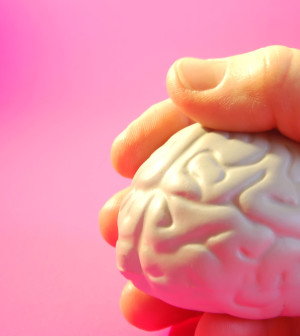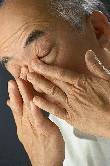- 8 Ways to Increase Dopamine Naturally
- 7 Best Breads for Maintaining Stable Blood Sugar
- Gelatin vs. Collagen: Which is Best for Skin, Nails, and Joints?
- The Long-Term Effects of Daily Turmeric Supplements on Liver Health
- Could Your Grocery Store Meat Be Causing Recurring UTIs?
- Are You Making This Expensive Thermostat Error This Winter?
- Recognizing the Signs of Hypothyroidism
- 10 Strategies to Overcome Insomnia
- Could Artificial Sweeteners Be Aging the Brain Faster?
- Techniques for Soothing Your Nervous System
New Insights Into Sleeping Disorder Narcolepsy


A new study has uncovered evidence that most cases of narcolepsy are caused by a misguided immune system attack — something that has been long suspected but unproven.
Experts said the finding, reported Dec. 18 in Science Translational Medicine, could lead to a blood test for the sleep disorder, which can be difficult to diagnose.
It also lays out the possibility that treatments that focus on the immune system could be used against the disease.
“That would be a long way out,” said Thomas Roth, director of the Sleep Disorders and Research Center at Henry Ford Hospital, in Detroit.
“If you’re a narcolepsy patient now, this isn’t going to change your clinical care tomorrow,” added Roth, who was not involved in the study.
Still, he said, the findings are “exciting,” and advance the understanding of narcolepsy.
Narcolepsy causes a range of symptoms, the most common being excessive sleepiness during the day. But it may be best known for triggering potentially dangerous “sleep attacks.” In these, people fall asleep without warning, for anywhere from a few seconds to a few minutes.
About 70 percent of people with narcolepsy have a symptom called cataplexy — sudden bouts of muscle weakness. That’s known as type 1 narcolepsy, and it affects roughly one in 3,000 people, according to the U.S. National Institute of Neurological Disorders and Stroke.
Research shows that those people have low levels of a brain chemical called hypocretin, which helps you stay awake. And experts have believed the deficiency is probably caused by an abnormal immune system attack on the brain cells that produce hypocretin.
“Narcolepsy has been suspected of being an autoimmune disease,” said Dr. Elizabeth Mellins, a senior author of the study and an immunology researcher at Stanford University School of Medicine, in California.
“But,” she said, “there’s never really been proof of immune system activity that’s any different from normal activity.”
Mellins thinks her team has uncovered “very strong evidence” of just such an underlying problem.
The researchers found that people with narcolepsy have a subgroup of T cells in their blood that react to particular portions of the hypocretin protein — but narcolepsy-free people do not. T cells are a key part of immune system defenses against infection.
That finding was based on 39 people with type 1 narcolepsy, and 35 people without the disorder — including four sets of twins in which one twin was affected and the other was not.
It’s known that genetic susceptibility plays a role in narcolepsy. And the theory, Mellins explained, is that in people with that inherent risk, certain environmental triggers may cause an autoimmune reaction against the body’s own hypocretin.
Infections are the main culprit, and there is already evidence that the H1N1 “swine” flu is one trigger. In China, Mellins noted, there was an upswing in childhood narcolepsy cases after the H1N1 flu pandemic of 2009.
And in 2010, a cluster of narcolepsy cases in Europe was linked to a particular H1N1 vaccine that contained an “adjuvant” designed to induce a stronger immune system response. That vaccine, called Pandemrix, is no longer in use.
All of that led experts to speculate that in some genetically vulnerable people, the H1N1 virus could cause T cells to mistakenly attack hypocretin-producing brain cells.
And in the current study, Mellins’s team found that segments of the H1N1 virus were similar to portions of the hypocretin protein — the same portions that activated narcolepsy patients’ T cells. They say that supports the idea that certain infections confuse T cells into attacking hypocretin-producing cells.
An expert on sleep welcomed the new study.
“They’re providing more-compelling evidence that this is an autoimmune disease,” said Dr. Nathaniel Watson, an associate professor of neurology at the University of Washington in Seattle, and a member of the board of directors for the American Academy of Sleep Medicine.
He and Mellins both said the results could have practical use, too. For one, researchers may be able to develop a blood test to help objectively diagnose narcolepsy.
Right now, Watson said, narcolepsy can be difficult to pinpoint, because the most common symptom — daytime sleepiness — has far more common causes. The most common, he noted, is simple: Not going to bed early enough.
So to diagnose narcolepsy, people may have to spend 24 hours in a sleep lab or, in some cases, have a lumbar puncture (spinal tap) to measure hypocretin in the spinal fluid.
Mellins said that if an autoimmune reaction is the cause of type 1 narcolepsy, it might be possible to treat with an immune-suppressing therapy.
The problem, though, is that once people develop full-blown symptoms, their hypocretin-producing cells have already been knocked off.
“We’d need some kind of pre-clinical marker of the disease to be able to intervene,” said Watson at the University of Seattle.
Roth of Henry Ford Hospital agreed. “The big challenge is, how will you identify the people to treat?”
Three of the study authors reported they are inventors on a patent to use the hypocretin protein segments to diagnose narcolepsy. Stanford owns the intellectual property rights for this use.
More information
The U.S. National Institute of Neurological Disorders and Stroke has more on narcolepsy.
Source: HealthDay
Copyright © 2026 HealthDay. All rights reserved.










